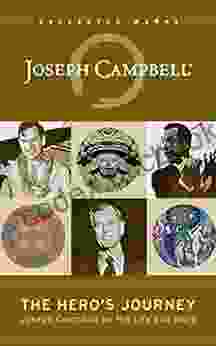Adam Smith's Marketplace of Life: Unraveling the Invisible Hand and the Moral Foundations of Capitalism


5 out of 5
| Language | : | English |
| File size | : | 3348 KB |
| Text-to-Speech | : | Enabled |
| Word Wise | : | Enabled |
| Lending | : | Enabled |
| Print length | : | 354 pages |
In the annals of economic thought, Adam Smith stands as a towering figure, renowned for his revolutionary ideas that shaped the very foundations of modern capitalism. His seminal work, "The Wealth of Nations," has profoundly influenced economic policy and business practices for centuries. However, it is in his lesser-known "The Theory of Moral Sentiments" that Smith reveals a profound understanding of human nature, morality, and the intricate interplay between self-interest and social harmony.
Within "The Theory of Moral Sentiments," Smith introduces the concept of the "marketplace of life," a metaphorical realm where individuals pursue their self-interests in a manner that ultimately benefits society as a whole. This groundbreaking idea, often referred to as the "invisible hand," has become a cornerstone of economic theory and a source of ongoing fascination for scholars and practitioners alike.
Through the lens of the marketplace of life, Smith argues that human beings are inherently self-interested and driven by a desire for recognition and approval. However, he also contends that we possess an innate moral sense, a capacity for empathy and compassion that tempers our self-serving impulses. This delicate balance between self-interest and morality, Smith believed, is the driving force behind human progress and social Free Download.
Smith's marketplace of life is not a place of unbridled greed and selfishness. Rather, it is a dynamic and complex arena where individuals interact, compete, and cooperate, guided by both their own desires and the shared values of the community. By pursuing their self-interests within the confines of these moral boundaries, individuals inadvertently contribute to the overall well-being of society.
This seemingly paradoxical relationship between self-interest and social harmony is what Smith referred to as the "harmony of interests." In the marketplace of life, individuals strive to maximize their own gains, but in ng so, they are also compelled to consider the interests of others. This tension between individual desires and collective well-being creates a delicate equilibrium that, when functioning properly, fosters progress, innovation, and prosperity.
Smith's insights into the interplay between self-interest and morality have profound implications for our understanding of capitalism. Capitalism, Smith argued, is not inherently evil or exploitative. Rather, it is a system that harnesses the power of self-interest for the benefit of society as a whole. When individuals are free to pursue their own economic interests, they inadvertently create wealth and prosperity that ultimately benefits everyone. This is the essence of the invisible hand, the unseen force that guides individual actions towards the greater good.
However, Smith was also aware of the potential pitfalls of capitalism. He recognized that the pursuit of self-interest could sometimes lead to greed, inequality, and social unrest. To mitigate these risks, he emphasized the importance of moral education and the cultivation of a strong sense of community. By instilling in individuals a sense of empathy, compassion, and civic responsibility, we can ensure that the marketplace of life remains a force for good.
In "The Theory of Moral Sentiments," Adam Smith offers a profound and nuanced exploration of human nature, morality, and the economic system that shapes our lives. Through his concept of the marketplace of life, he uncovers the delicate balance between self-interest and social harmony, and provides a framework for understanding the moral foundations of capitalism. His insights remain as relevant and thought-provoking today as they were when they were first published, offering a timeless guide to the complexities of human behavior and the pursuit of a just and prosperous society.
5 out of 5
| Language | : | English |
| File size | : | 3348 KB |
| Text-to-Speech | : | Enabled |
| Word Wise | : | Enabled |
| Lending | : | Enabled |
| Print length | : | 354 pages |
Do you want to contribute by writing guest posts on this blog?
Please contact us and send us a resume of previous articles that you have written.
 Book
Book Novel
Novel Page
Page Chapter
Chapter Text
Text Story
Story Genre
Genre Reader
Reader Library
Library Paperback
Paperback E-book
E-book Magazine
Magazine Newspaper
Newspaper Paragraph
Paragraph Sentence
Sentence Bookmark
Bookmark Shelf
Shelf Glossary
Glossary Bibliography
Bibliography Foreword
Foreword Preface
Preface Synopsis
Synopsis Annotation
Annotation Footnote
Footnote Manuscript
Manuscript Scroll
Scroll Codex
Codex Tome
Tome Bestseller
Bestseller Classics
Classics Library card
Library card Narrative
Narrative Biography
Biography Autobiography
Autobiography Memoir
Memoir Reference
Reference Encyclopedia
Encyclopedia Justin Merm
Justin Merm Thomas Koulopoulos
Thomas Koulopoulos Ephraim Mattos
Ephraim Mattos Gail Simmons
Gail Simmons Neil Caplan
Neil Caplan Emma Rae Parker
Emma Rae Parker Olivia Kerr
Olivia Kerr Stan Tatkin
Stan Tatkin Paul Holt
Paul Holt G Bailey
G Bailey Nick Bollettieri
Nick Bollettieri Steven Dillon
Steven Dillon Kristin Marciniak
Kristin Marciniak Steve J Martin
Steve J Martin Emma Anne Bellamy
Emma Anne Bellamy Marilyn M Litvak
Marilyn M Litvak William Evans
William Evans Neil Hoffman
Neil Hoffman Scott Kloos
Scott Kloos Victor H Mair
Victor H Mair
Light bulbAdvertise smarter! Our strategic ad space ensures maximum exposure. Reserve your spot today!

 Dwayne MitchellSavor the Authentic Flavors of Thailand: A Culinary Journey with "Classic...
Dwayne MitchellSavor the Authentic Flavors of Thailand: A Culinary Journey with "Classic... Graham BlairFollow ·8.3k
Graham BlairFollow ·8.3k Frank MitchellFollow ·14.5k
Frank MitchellFollow ·14.5k Javier BellFollow ·9.4k
Javier BellFollow ·9.4k Simon MitchellFollow ·9.2k
Simon MitchellFollow ·9.2k Jarrett BlairFollow ·17.7k
Jarrett BlairFollow ·17.7k Stuart BlairFollow ·4.2k
Stuart BlairFollow ·4.2k Elton HayesFollow ·12k
Elton HayesFollow ·12k Manuel ButlerFollow ·15.6k
Manuel ButlerFollow ·15.6k

 Isaias Blair
Isaias BlairEscape to Sunrise Cottage: A Captivating Read You Won't...
Are you ready for a...

 Bradley Dixon
Bradley DixonWhen Baby Is Born, So Is Mother: A Comprehensive Guide to...
Giving birth is a...

 Mario Simmons
Mario SimmonsPhotographic Journal of Cruise Around South America: A...
Embark on an Extraordinary Expedition ...

 Langston Hughes
Langston HughesDream Achieved: Unlocking the Power Within to Make Your...
In the tapestry...
5 out of 5
| Language | : | English |
| File size | : | 3348 KB |
| Text-to-Speech | : | Enabled |
| Word Wise | : | Enabled |
| Lending | : | Enabled |
| Print length | : | 354 pages |














